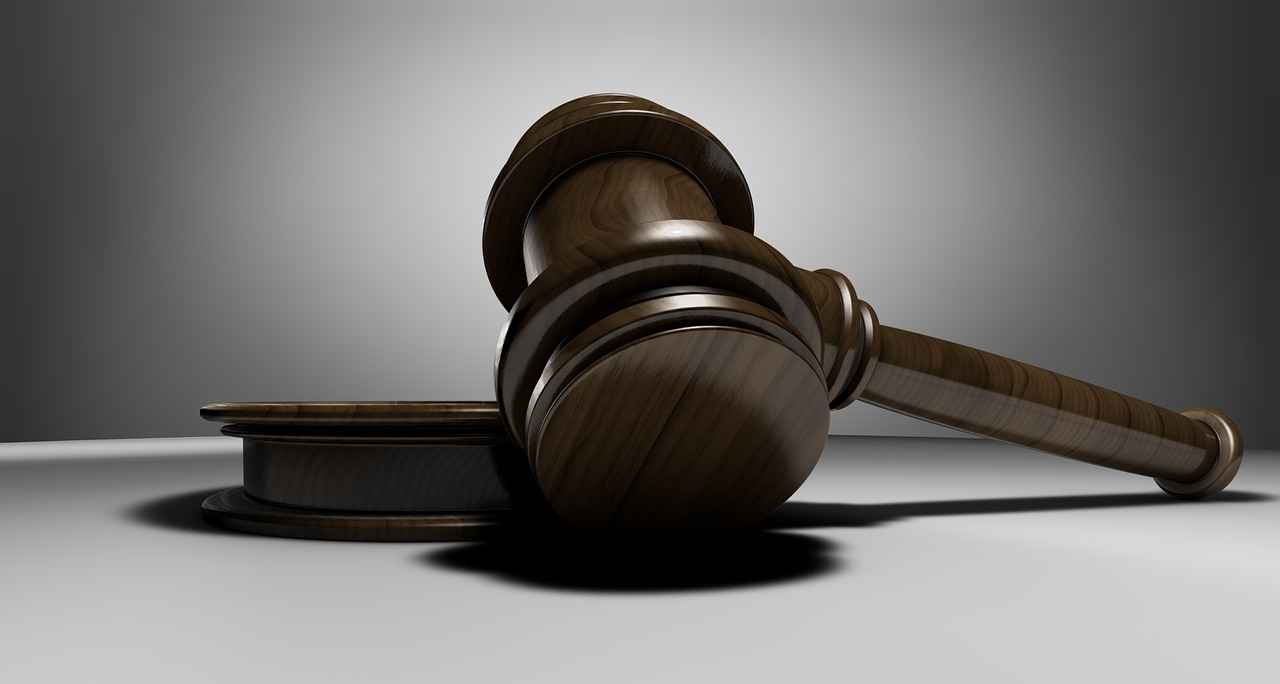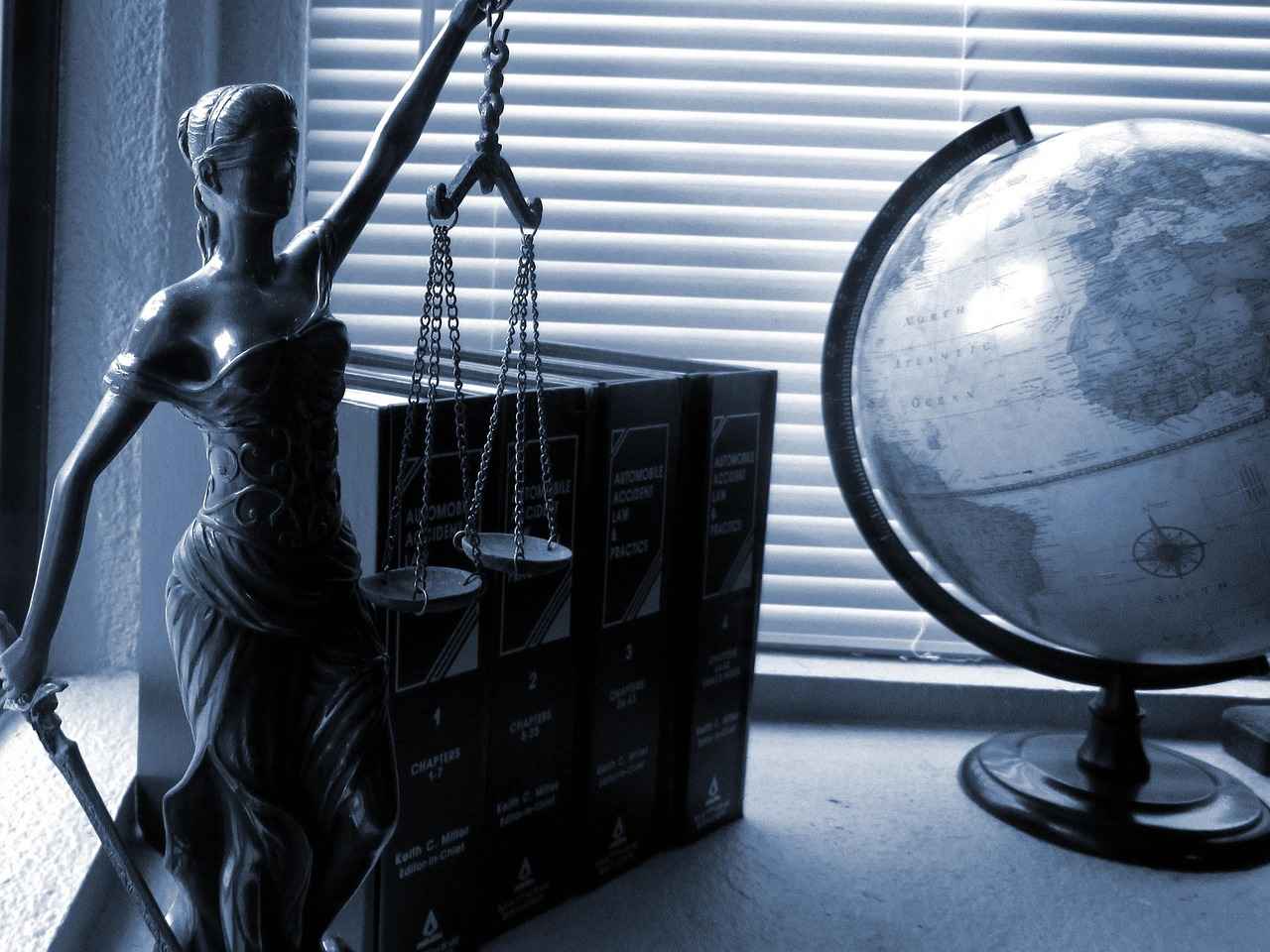This article explores various types of legal cases in the U.S. and offers expert guidance on finding qualified attorneys in Boston, focusing on practical strategies and essential criteria.
Personal injury cases encompass a wide range of incidents where individuals seek compensation for injuries caused by another’s negligence. These can include car accidents, slip and falls, and workplace injuries. To navigate these cases effectively, it is crucial to find an attorney who specializes in personal injury law. Look for lawyers with a proven track record of winning similar cases and those who offer free consultations to discuss your situation without financial commitment. Additionally, check online reviews and testimonials to gauge their reputation.
Medical malpractice involves healthcare professionals failing to provide the standard of care, leading to patient harm. This category can include surgical errors, misdiagnosis, and medication mistakes. When searching for a lawyer in this field, prioritize those with specific experience in medical malpractice cases. Verify their credentials, such as board certifications and memberships in relevant legal associations. It’s also beneficial to seek referrals from trusted healthcare professionals who may know competent attorneys in this niche.
Breach of contract cases arise when one party fails to fulfill their obligations as outlined in a contract. This can occur in business agreements, rental agreements, and employment contracts. To resolve these disputes effectively, identify a lawyer with expertise in contract law. Look for attorneys who have successfully handled similar cases and understand the nuances of contract interpretation. Online legal platforms can also help you compare different lawyers based on their experience and client feedback.
Property disputes can involve issues related to ownership, boundaries, or tenant rights. Selecting an attorney with experience in real estate law is critical for navigating these often complicated cases. When looking for a lawyer, ensure they have a solid understanding of local property laws and regulations. Many attorneys offer initial consultations, allowing you to assess their knowledge and approach. Additionally, consider their negotiation skills, as many property disputes can be resolved amicably through mediation.
Landlord-tenant disputes frequently arise over lease agreements, property conditions, or eviction processes. Knowing how to find a knowledgeable attorney can help resolve these conflicts amicably. Seek lawyers who specialize in landlord-tenant law and have a good understanding of local housing regulations. Online legal services provide directories that can help you find qualified attorneys in your area. It’s essential to discuss your specific situation during the initial consultation to gauge the lawyer’s expertise.
Defamation cases involve false statements that damage a person’s reputation. These can be categorized into libel (written) and slander (spoken). Finding a lawyer experienced in defamation law is crucial for protecting your rights. Look for attorneys with a history of handling defamation cases and those who can demonstrate their understanding of the First Amendment and relevant state laws. Assess their communication skills and willingness to take cases to trial if necessary, as many defamation cases settle out of court.
Employment disputes encompass issues such as wrongful termination, discrimination, and wage violations. Selecting an attorney with a strong background in employment law is essential for advocating your rights effectively. When searching for a lawyer, consider their experience with cases similar to yours and their success rates in court. Resources like the National Employment Lawyers Association can help you find qualified attorneys who prioritize employee rights. Pay attention to their approach to client relationships, as empathy and understanding are crucial in these sensitive matters.
Product liability cases involve injuries caused by defective products. Understanding how to find a qualified attorney in this area can significantly impact the success of your claim. Look for lawyers with experience in handling product liability cases, especially those who have dealt with similar products. Check their credentials and past case outcomes to ensure they have a solid understanding of consumer protection laws. Many attorneys offer free consultations, which can provide insight into their approach and expertise.
Wrongful death claims arise when negligence leads to a fatality, leaving families seeking justice and compensation. Knowing how to choose a compassionate and experienced attorney can help families navigate this difficult process. Seek lawyers who specialize in wrongful death cases and have a proven track record of securing settlements or verdicts for their clients. It’s vital to discuss their approach to handling sensitive cases and their willingness to support you throughout the legal process.
Class action lawsuits allow individuals to collectively sue for similar grievances, often against large corporations. Finding a lawyer with experience in managing these complex cases is vital for effective representation. Look for attorneys who have successfully led class actions in the past and can demonstrate their understanding of the legal requirements for such lawsuits. Online legal directories can help you identify qualified attorneys who specialize in class action litigation.
Assault and battery cases involve intentional harm or the threat of harm. Identifying a lawyer who specializes in criminal law can help navigate the complexities of these charges. When searching for a criminal defense attorney, prioritize those with experience in handling assault cases and a strong understanding of self-defense laws. Client reviews and testimonials can provide insight into their effectiveness and approach in court.
Drug offenses encompass a variety of charges, from possession to trafficking. Choosing an attorney with expertise in criminal defense is crucial for navigating these serious legal issues. Look for lawyers who specialize in drug offenses and have a successful track record in defending clients against such charges. Many legal aid organizations can also provide referrals to qualified defense attorneys, especially for those who may not be able to afford private representation.
Divorce and family law cases require sensitive handling of personal issues, including child custody and support. Selecting an attorney with experience in family law can ensure that your interests are effectively represented. Look for lawyers who are empathetic and have a strong understanding of family dynamics. Online reviews and referrals from friends or family can help you find a trustworthy attorney. Many family law attorneys offer initial consultations to discuss your case, which can help you assess their compatibility with your needs.

Understanding Personal Injury Cases
Personal injury cases are a significant aspect of the legal landscape in the United States. These cases arise when an individual suffers harm due to the negligence or wrongful actions of another party. The injuries can result from various incidents, including automobile accidents, slip and falls, workplace accidents, and medical malpractice. Understanding the nuances of personal injury law is essential for anyone seeking compensation for their injuries.
To navigate the complexities of personal injury cases effectively, individuals should first recognize the importance of legal representation. A knowledgeable attorney can guide clients through the intricate legal processes, ensuring that they understand their rights and the potential outcomes of their cases. Here are some critical factors to consider when pursuing a personal injury claim:
- Establishing Negligence: To win a personal injury case, the plaintiff must prove that the defendant acted negligently. This often involves demonstrating that the defendant had a duty of care, breached that duty, and caused the plaintiff’s injuries as a direct result.
- Gathering Evidence: Effective personal injury claims rely heavily on evidence. This includes medical records, accident reports, witness statements, and photographs of the incident scene. An experienced lawyer knows how to collect and present this evidence compellingly.
- Understanding Insurance Policies: Many personal injury cases involve insurance claims. Knowing how to navigate these policies and negotiate with insurance adjusters is crucial. Attorneys can help clients understand their coverage and the limits of their policies.
- Calculating Damages: Compensation in personal injury cases can cover a wide range of damages, including medical expenses, lost wages, and pain and suffering. A skilled attorney will help clients accurately assess the full extent of their damages.
- Statute of Limitations: Each state has a statute of limitations that dictates how long an individual has to file a personal injury claim. Failing to file within this timeframe can result in losing the right to pursue compensation.
When searching for a qualified personal injury attorney, individuals should consider the following:
- Experience: Look for attorneys who specialize in personal injury law and have a proven track record of successful settlements and verdicts.
- Client Reviews: Online reviews and testimonials can provide insight into an attorney’s reputation and the experiences of past clients.
- Initial Consultations: Many personal injury lawyers offer free consultations. Use this opportunity to ask questions and gauge their expertise and communication style.
- Fee Structure: Most personal injury attorneys work on a contingency fee basis, meaning they only get paid if you win your case. Ensure you understand their fee structure before proceeding.
In conclusion, navigating personal injury cases requires a thorough understanding of the legal framework and a strategic approach to finding the right attorney. By focusing on the factors outlined above, individuals can enhance their chances of achieving a favorable outcome in their personal injury claims.

Navigating Medical Malpractice Claims
Medical malpractice is a serious issue within the healthcare system, where healthcare professionals fail to meet the standard of care, resulting in significant harm to patients. The complexities surrounding medical malpractice claims require a specialized legal approach, and choosing the right lawyer can be pivotal for a favorable outcome. This section aims to provide comprehensive guidance on navigating medical malpractice claims and the essential steps in selecting a qualified attorney.
When considering a medical malpractice claim, it is crucial to understand the specific elements that constitute such a case. Typically, a plaintiff must demonstrate that a healthcare provider had a duty of care, breached that duty, and that the breach directly resulted in harm. This often requires expert testimony and a deep understanding of medical practices, making it essential to find an attorney with a strong background in both law and medicine.
To find the best medical malpractice lawyer, start by seeking recommendations from trusted sources, such as friends, family, or other legal professionals. Online platforms like Avvo and Martindale-Hubbell provide reviews and ratings for attorneys, which can be helpful in assessing their qualifications. Look for lawyers who have extensive experience specifically in medical malpractice cases, as they will be more familiar with the intricacies involved.
It is also important to verify the attorney’s credentials. Check if they are licensed to practice in your state and confirm their standing with the state bar association. Look for any disciplinary actions or complaints that may raise red flags. Additionally, inquire about their track record in handling similar cases. A successful history of verdicts or settlements in favor of clients can be a strong indicator of competence.
During initial consultations, which many attorneys offer for free, pay attention to how they communicate. A good attorney should be able to explain complex legal concepts in a way that is easy to understand. They should also demonstrate empathy and a genuine interest in your case. Ask about their approach to handling your claim, including how they plan to gather evidence and which experts they may consult.
Another crucial factor is the attorney’s fee structure. Medical malpractice cases often operate on a contingency fee basis, meaning the lawyer only gets paid if you win your case. Make sure to clarify the percentage they will take and any additional costs you may incur during the process. Understanding the financial aspects upfront can help avoid surprises later on.
Lastly, trust your instincts. The attorney-client relationship is built on trust and confidence. If you feel uncomfortable or uncertain about an attorney’s approach, it may be worth exploring other options. Remember that you have the right to seek legal representation that aligns with your needs and expectations.
In summary, navigating medical malpractice claims requires careful consideration and thorough research when selecting a lawyer. By focusing on qualifications, experience, communication, and trust, you can significantly enhance your chances of achieving a successful outcome in your case.

Dealing with Breach of Contract Disputes
Breach of contract cases arise when one party fails to fulfill their obligations as stipulated in a legally binding agreement. These disputes can occur in various contexts, including business transactions, employment agreements, and real estate contracts. Understanding the nuances of contract law is essential for both individuals and businesses seeking to resolve these conflicts effectively.
When faced with a breach of contract, the first step is to assess the situation thoroughly. Gather all relevant documentation, such as the contract itself, correspondence between the parties, and any evidence of the breach. This information will be crucial in establishing your case and demonstrating how the other party failed to meet their obligations.
Finding a lawyer with expertise in contract law is vital for navigating these disputes. Here are some practical steps to consider when searching for a qualified attorney:
- Specialization: Look for lawyers who specifically focus on contract law. Their specialized knowledge will be invaluable in understanding the intricacies of your case.
- Experience: An attorney with a proven track record in handling breach of contract cases will be better equipped to advocate for your interests. Consider their years of practice and the number of similar cases they have successfully resolved.
- Reputation: Research potential lawyers through online reviews, testimonials, and professional ratings. A strong reputation in the legal community can indicate reliability and competence.
- Consultation: Schedule initial consultations with multiple attorneys. This will allow you to gauge their communication style, approach to your case, and overall compatibility.
- Fees and Costs: Discuss the attorney’s fee structure upfront. Understanding how they charge—whether hourly, flat fee, or contingency—will help you avoid any surprises later on.
In addition to these factors, it’s essential to be aware of red flags when hiring a lawyer:
- Lack of Communication: If an attorney is slow to respond or fails to keep you updated, this may indicate a lack of commitment to your case.
- Overpromising Results: Be cautious of lawyers who guarantee specific outcomes. Legal cases can be unpredictable, and no attorney can assure a win.
- Pressure Tactics: Avoid lawyers who pressure you into making quick decisions. A reputable attorney will provide you with the information you need to make informed choices.
Once you have selected an attorney, they will help you determine the best course of action. This may involve negotiations, mediation, or, if necessary, litigation. Each option has its advantages and disadvantages, and your lawyer will guide you in choosing the path that aligns with your goals.
In conclusion, dealing with breach of contract disputes can be challenging, but with the right legal representation, you can effectively navigate the complexities of contract law. By following the steps outlined above, you can find a qualified attorney who will advocate for your interests and help you achieve a favorable resolution.

Resolving Property Disputes
Property disputes are a significant aspect of real estate law, often arising from disagreements over ownership, boundaries, or tenant issues. These disputes can be complex and emotionally charged, necessitating expert legal assistance to navigate effectively. When faced with a property dispute, selecting an attorney with a solid background in real estate law is not just advisable; it is critical.
Understanding the nuances of property law can make all the difference in resolving disputes efficiently. Property disputes can involve various issues, including:
- Ownership disputes: Conflicts regarding who has legal rights to a property.
- Boundary disputes: Issues related to property lines and encroachments.
- Tenant issues: Problems between landlords and tenants concerning lease agreements or property conditions.
When searching for a qualified attorney, consider the following strategies:
- Research their experience: Look for attorneys who specialize in real estate law and have a proven track record in handling property disputes.
- Check credentials: Verify their educational background, licensing, and any professional affiliations with real estate or legal associations.
- Read reviews: Look for testimonials from previous clients to gauge their satisfaction and the attorney’s effectiveness.
- Consultation: Schedule initial consultations with potential attorneys to discuss your case and assess their communication style and approach.
It is also essential to be aware of potential red flags when choosing a lawyer. Avoid attorneys who:
- Promise guaranteed outcomes, as no lawyer can ensure a specific result.
- Pressure you into making quick decisions without fully understanding your options.
- Have a history of complaints or disciplinary actions against them.
In metropolitan areas like New York City, Los Angeles, and Chicago, the competition among attorneys can be fierce. Therefore, utilizing online platforms such as Avvo or FindLaw can help you find reputable attorneys in your area. These platforms often provide ratings, reviews, and detailed profiles, allowing you to make informed decisions.
Additionally, personal referrals from friends, family, or colleagues can lead to finding trustworthy legal representation. When someone you know has had a positive experience with an attorney, it can provide peace of mind as you navigate your property dispute.
Ultimately, resolving property disputes requires not only legal expertise but also a compassionate approach to understanding the emotional stakes involved. By taking the time to find the right attorney, you can ensure that your interests are effectively represented and that you can move toward a resolution that works for you.

Landlord-Tenant Disputes Explained
Landlord-tenant disputes are a common occurrence in the realm of rental agreements and property management. These disputes can arise from various issues, including disagreements over lease terms, property conditions, and the responsibilities of both landlords and tenants. Understanding the intricacies of these conflicts is essential for both parties involved. With over 30 years of experience in the U.S. legal system, I can provide valuable insights into how to navigate these disputes effectively.
One of the primary reasons for landlord-tenant disputes is the lease agreement. This legal document outlines the rights and responsibilities of both parties. When a tenant believes that their landlord is not fulfilling their obligations—such as maintaining the property in a habitable condition or returning a security deposit—conflicts can arise. Conversely, landlords may face issues when tenants fail to pay rent on time or violate lease terms.
To resolve these disputes amicably, it is crucial to find a knowledgeable attorney who specializes in landlord-tenant law. Here are some practical steps to consider when searching for the right legal representation:
- Research Local Attorneys: Start by searching for lawyers who focus on real estate or landlord-tenant law in your area. Websites like Avvo and FindLaw can provide listings and reviews of local attorneys.
- Check Credentials: Look for attorneys with experience in landlord-tenant disputes. It’s beneficial to choose someone who has handled cases similar to yours.
- Read Reviews: Client testimonials can provide insight into an attorney’s effectiveness and professionalism. Pay attention to both positive and negative feedback.
- Consultation: Schedule consultations with potential lawyers to discuss your case. This will give you a sense of their approach and whether they are a good fit for your needs.
- Understand Fees: Be clear about the attorney’s fee structure. Some may charge hourly rates, while others may work on a contingency basis, especially if they believe you have a strong case.
It is also vital to be aware of red flags when selecting an attorney. These may include:
- Lack of Communication: If an attorney is difficult to reach or does not respond to your inquiries promptly, it may indicate potential issues down the line.
- Unclear Fee Structure: Avoid attorneys who cannot clearly explain their fees or who request large upfront payments without a clear understanding of your case.
- Negative Reviews: Be cautious of attorneys with multiple negative reviews or complaints filed against them.
In some cases, mediation may be a more suitable option for resolving disputes without the need for litigation. Mediation involves a neutral third party who helps facilitate a dialogue between the landlord and tenant, aiming for a mutually agreeable solution. This can save both time and money compared to going through the court system.
In conclusion, navigating landlord-tenant disputes can be challenging, but with the right legal guidance, it is possible to reach a fair resolution. By thoroughly researching and selecting a qualified attorney, you can protect your rights and interests in these often-complex situations.

Understanding Defamation Cases
Defamation cases are a critical aspect of the legal landscape, involving false statements that can significantly damage a person’s reputation. These cases typically fall into two categories: libel, which refers to written defamatory statements, and slander, which pertains to spoken defamatory remarks. Given the serious implications of defamation, it is essential to understand the nuances of these cases and how to find a qualified attorney to protect your rights.
When seeking legal representation for a defamation case, consider the following steps:
- Research Experience: Look for attorneys who specialize in defamation law, particularly those with a proven track record in handling libel and slander cases. Their experience can significantly influence the outcome of your case.
- Check Credentials: Verify the lawyer’s educational background, bar association membership, and any additional certifications. A lawyer with a strong legal foundation and relevant certifications will be better equipped to navigate the complexities of defamation law.
- Review Past Cases: Investigate the attorney’s past cases, focusing on their success rates in defamation lawsuits. Reading client testimonials and reviews can provide insights into their effectiveness and client satisfaction.
- Consultation: Schedule a consultation to discuss your case. This meeting will allow you to assess the attorney’s communication skills, understanding of defamation law, and overall approach to your situation.
- Evaluate Fees: Understand the attorney’s fee structure. Some lawyers may work on a contingency basis, meaning they only get paid if you win your case, while others may charge hourly rates. Ensure that you are comfortable with the financial arrangement before proceeding.
In major cities like New York City, Los Angeles, and Chicago, the competition among lawyers can be fierce. Utilize online platforms such as Avvo, FindLaw, or Lawyers.com to compare attorneys, read reviews, and check their ratings. These resources can help you identify reputable lawyers who specialize in defamation cases.
Additionally, be aware of red flags when hiring an attorney. If a lawyer makes unrealistic promises about the outcome of your case or pressures you into making quick decisions, consider this a warning sign. A reputable attorney will provide honest assessments and allow you to make informed choices.
Ultimately, finding the right lawyer for your defamation case involves thorough research, careful consideration of credentials, and an understanding of the legal landscape. By following these guidelines, you can ensure that your rights are protected and that you have a strong advocate in your corner.

Employment Disputes and Workers’ Rights
Employment disputes are a significant concern for many workers in the United States, encompassing a variety of issues such as wrongful termination, discrimination, and harassment. These disputes can arise in any workplace environment and often lead to legal action if not resolved amicably. Understanding your rights as an employee and knowing how to navigate these disputes is crucial for protecting your interests.
When facing employment-related issues, it is essential to select an attorney who specializes in employment law. A lawyer with a strong background in this field will be equipped to advocate for your rights effectively. Here are some critical factors to consider when choosing the right attorney for your employment dispute:
- Experience in Employment Law: Look for attorneys who have a proven track record in handling cases similar to yours. This includes familiarity with local and federal employment laws.
- Client Reviews and Testimonials: Research online reviews and ask for testimonials from former clients to gauge the attorney’s effectiveness and professionalism.
- Initial Consultation: Many attorneys offer a free initial consultation. Use this opportunity to assess their communication style and understanding of your case.
- Fees and Payment Structure: Understand the attorney’s fee structure. Some may work on a contingency basis, meaning they only get paid if you win your case, while others may charge hourly rates.
- Communication Skills: Effective communication is vital. Ensure that the attorney is responsive and willing to explain legal concepts in a way you can understand.
In addition to these factors, it is also important to be aware of common red flags when hiring an attorney:
- Lack of Specialization: Avoid attorneys who claim to handle a wide range of legal issues without a specific focus on employment law.
- Poor Reputation: Be cautious of attorneys with a history of disciplinary actions or negative reviews from clients.
- Pressure Tactics: If an attorney pressures you to sign a contract or make a quick decision, it may be a sign of a lack of professionalism.
When dealing with employment disputes, it is also crucial to document everything related to your case. Keep records of any communications with your employer, including emails, memos, and notes from meetings. This documentation can be invaluable if you need to pursue legal action.
Furthermore, familiarize yourself with the various types of employment disputes. These can include:
- Wrongful Termination: Termination that violates employment contracts or public policy.
- Discrimination: Unfair treatment based on race, gender, age, or other protected characteristics.
- Harassment: Unwanted conduct that creates a hostile work environment.
- Wage and Hour Violations: Issues related to unpaid wages or overtime compensation.
In major metropolitan areas such as New York City, Los Angeles, and Chicago, there are numerous resources available for finding qualified employment attorneys. Local bar associations often provide referral services, and online platforms such as Avvo and FindLaw can help you compare attorneys based on their experience and client reviews.
Ultimately, navigating employment disputes can be complex and emotionally taxing. By selecting a qualified attorney who specializes in employment law, you can ensure that your rights are protected and that you have the best chance of achieving a favorable outcome.

Product Liability Cases: What You Need to Know
Product liability cases are critical in ensuring that consumers are protected from injuries caused by defective products. These cases can arise from various issues, including design flaws, manufacturing defects, and inadequate warnings or instructions. Understanding the nuances of product liability law is essential for anyone looking to file a claim or defend against one.
When pursuing a product liability case, it is vital to find a qualified attorney who specializes in this field. Here are some key factors to consider when searching for legal representation:
- Experience: Look for an attorney with a proven track record in handling product liability cases. Their experience can significantly influence the outcome of your claim.
- Specialization: Choose a lawyer who focuses specifically on product liability and personal injury law. This specialization ensures they are familiar with the latest regulations and case precedents.
- Reputation: Research potential attorneys by checking online reviews, testimonials, and their standing with the state bar association. A lawyer with a solid reputation is more likely to provide effective representation.
- Communication Skills: Effective communication is crucial in legal matters. Ensure that the attorney is responsive and can explain complex legal concepts in an understandable manner.
- Fee Structure: Understand the attorney’s fee structure before committing. Many personal injury lawyers work on a contingency fee basis, meaning they only get paid if you win your case.
To find qualified attorneys, consider the following methods:
- Referrals: Ask friends, family, or colleagues for recommendations. Personal referrals can lead you to trustworthy lawyers.
- Online Legal Directories: Websites like Avvo, Martindale-Hubbell, and FindLaw provide listings and reviews of attorneys based on their specialties.
- Local Bar Associations: Contact your local or state bar association for referrals to qualified lawyers in your area.
- Consultations: Schedule initial consultations with potential attorneys. This meeting allows you to gauge their expertise and whether they are a good fit for your case.
When interviewing potential attorneys, ask questions that will help you assess their suitability:
- What is your experience with product liability cases?
- Can you provide examples of similar cases you have handled?
- How do you approach cases like mine?
- What is your success rate in product liability claims?
- What will be your strategy for my case?
As you navigate the process of finding an attorney, be aware of red flags that may indicate a less-than-reputable lawyer:
- Lack of Transparency: If an attorney is unwilling to discuss fees or provide a clear outline of their services, consider it a warning sign.
- Pressure Tactics: Be cautious of lawyers who pressure you to sign contracts quickly or make hasty decisions.
- Poor Communication: If the attorney is hard to reach or does not respond promptly to your inquiries, it may indicate a lack of commitment to your case.
In conclusion, product liability cases require careful consideration when selecting legal representation. By focusing on experience, specialization, reputation, and communication skills, you can find a qualified attorney who will advocate for your rights and help you navigate the complexities of your case. Remember that the right lawyer can make a significant difference in the outcome of your claim.

Wrongful Death Claims: Seeking Justice
Wrongful death claims are a tragic yet important area of law that arise when negligence or misconduct results in the untimely death of an individual. These claims allow surviving family members to seek justice and compensation for their loss, addressing not only the emotional toll but also the financial burdens that come with such a devastating event. Understanding how to navigate this complex legal landscape is crucial for families seeking accountability and support during a profoundly difficult time.
When pursuing a wrongful death claim, it is essential to select an attorney who is not only experienced in this specific area of law but also demonstrates a deep sense of compassion for the grieving family. Here are some key considerations to keep in mind while searching for the right legal representation:
- Experience and Specialization: Look for attorneys who specialize in wrongful death cases and have a proven track record of handling similar claims. Their expertise in navigating the intricacies of these cases can significantly impact the outcome.
- Reputation: Research potential attorneys through online reviews, testimonials, and legal directories. A strong reputation within the legal community and among former clients is a good indicator of an attorney’s capabilities.
- Initial Consultation: Many attorneys offer free consultations. Use this opportunity to discuss your case and assess the attorney’s understanding and approach. Pay attention to their communication style and whether they exhibit genuine concern for your situation.
- Fee Structure: Understand the attorney’s fee structure upfront. Most wrongful death claims are handled on a contingency fee basis, meaning the attorney only gets paid if you win your case. Clarify all costs involved to avoid surprises later.
- Support Network: An attorney with a strong support team, including paralegals and investigators, can provide additional resources to strengthen your case. This is particularly important in wrongful death claims, where gathering evidence and expert testimonies can be vital.
In wrongful death cases, the plaintiff must prove that the defendant’s negligence directly caused the death. This often involves intricate legal arguments and the presentation of evidence, such as medical records, accident reports, and witness testimonies. Therefore, it is vital to have an attorney who is skilled in litigation and negotiation, as many cases are settled out of court.
Additionally, be prepared for the emotional challenges that come with pursuing a wrongful death claim. The process can be lengthy and taxing, which is why having a supportive attorney who understands the emotional weight of the situation is invaluable. They can guide you through the legal proceedings while allowing you to focus on healing.
Overall, seeking justice through a wrongful death claim is not just about financial compensation; it is about holding responsible parties accountable and ensuring that such negligence does not happen again. By choosing the right attorney, families can navigate this difficult journey with greater confidence and support.

Class Action Lawsuits: Collective Legal Action
Class action lawsuits represent a powerful tool for individuals seeking justice against larger entities, such as corporations or government agencies, that have caused widespread harm through similar grievances. These lawsuits enable a group of people with common claims to come together, share legal costs, and increase their chances of achieving a favorable outcome. However, navigating the complexities of class action litigation requires a thorough understanding of the legal landscape and the ability to find a qualified attorney with the right expertise.
When searching for a lawyer to handle a class action lawsuit, it is essential to consider several critical factors:
- Experience in Class Action Cases: Not all lawyers have the same level of experience with class action lawsuits. Look for attorneys who specialize in this area and have a proven track record of successfully managing similar cases.
- Reputation: Research potential lawyers by checking reviews, testimonials, and their standing with the state bar association. A strong reputation can often indicate a lawyer’s ability to effectively represent clients.
- Resources: Class action lawsuits can be resource-intensive. Ensure that the attorney or law firm has the necessary resources to conduct thorough investigations, gather evidence, and handle the complexities of litigation.
- Communication Skills: Effective communication is crucial in any legal case. Choose a lawyer who is responsive and willing to explain the process clearly, ensuring that you understand your rights and options.
Finding the right attorney can be facilitated through various methods:
- Referrals: Ask friends, family, or colleagues if they can recommend a lawyer with experience in class action lawsuits.
- Online Legal Directories: Websites such as Avvo, FindLaw, and Martindale-Hubbell provide listings of attorneys, along with ratings and reviews that can help you make an informed decision.
- Legal Aid Organizations: If you are facing financial constraints, consider reaching out to legal aid organizations that may provide assistance or referrals to qualified attorneys.
While it is essential to find a qualified lawyer, it is equally important to be aware of potential red flags:
- Unrealistic Promises: Be cautious of attorneys who guarantee specific outcomes or settlements. Legal cases can be unpredictable, and no lawyer can assure success.
- High Upfront Fees: While contingency fees are common in class action lawsuits, be wary of lawyers who demand large upfront payments. Understand the fee structure and ensure it aligns with industry standards.
- Lack of Transparency: A good attorney should be open about their approach and keep you informed throughout the process. If you feel that your lawyer is not communicating effectively, it may be a sign to reconsider.
In summary, class action lawsuits serve as a vital means for individuals to seek justice collectively. By focusing on finding an experienced attorney who specializes in class actions, conducting thorough research, and being mindful of potential pitfalls, you can significantly improve your chances of a successful outcome.

Assault and Battery Cases: Legal Implications
Assault and battery cases are serious legal matters that involve intentional harm or the threat of harm to another individual. These cases can have significant implications for both the victim and the accused, making it essential to understand the nuances involved. Assault refers to the act of causing someone to fear imminent harm, while battery involves actual physical contact. The legal definitions can vary by state, but the core principles remain consistent across the United States.
When facing assault and battery charges, it is crucial to seek the assistance of a lawyer who specializes in criminal law. These legal professionals possess the knowledge and expertise necessary to navigate the complexities of such cases. Here are some essential considerations for individuals involved in assault and battery cases:
- Understanding the Charges: Familiarize yourself with the specific charges being brought against you. Assault and battery can be classified as misdemeanors or felonies, depending on the severity of the actions and any prior convictions.
- Finding a Specialized Attorney: Look for a lawyer with a proven track record in handling assault and battery cases. Check their credentials, experience, and past case outcomes to ensure they are well-equipped to represent you.
- Evaluating Legal Strategies: A skilled attorney will develop a legal strategy tailored to your case. This may involve negotiating plea deals, gathering evidence, or preparing for trial.
- Understanding Potential Consequences: Be aware of the potential legal consequences if found guilty. Penalties can include fines, probation, or imprisonment, which can significantly impact your life.
- Gathering Evidence: Collect any evidence that may support your case, such as witness statements, photographs, or video footage. An experienced lawyer will help you build a strong defense.
- Communication is Key: Maintain open communication with your attorney. Provide them with all relevant information, as this will assist them in formulating the best defense strategy.
Additionally, it is essential to be aware of the statute of limitations for assault and battery cases in your state. This legal timeframe dictates how long you have to file charges or a lawsuit after the incident occurs. Missing this deadline can result in losing your right to seek justice.
In metropolitan areas like New York City, Los Angeles, and Chicago, the legal landscape can be particularly competitive. Here are some tips for finding the right attorney in these bustling cities:
- Utilize Online Legal Directories: Websites like Avvo, FindLaw, and Martindale-Hubbell allow you to search for attorneys based on their specialties and client reviews.
- Seek Referrals: Ask friends, family, or colleagues for recommendations. Personal referrals can be invaluable in finding trustworthy legal representation.
- Check Bar Association Listings: State and local bar associations often provide directories of licensed attorneys, which can help you verify their credentials and standing.
- Schedule Consultations: Many attorneys offer free initial consultations. Use this opportunity to gauge their expertise, communication style, and whether you feel comfortable working with them.
- Evaluate Their Approach: During the consultation, ask about their approach to handling assault and battery cases. A good attorney should be able to explain potential strategies and outcomes clearly.
In conclusion, navigating assault and battery cases requires a thorough understanding of the legal implications and a strategic approach to finding the right attorney. By taking the time to research and evaluate potential lawyers, individuals can ensure they have the best possible representation in their corner.

Understanding Drug Offenses and Legal Representation
Drug offenses are a significant area of concern within the U.S. legal system, encompassing a wide range of charges from simple possession to complex trafficking operations. The legal implications of these charges can be severe, impacting not only the accused but also their families and communities. Given the serious nature of these offenses, it is essential to choose an attorney with expertise in criminal defense to navigate the complexities of drug-related cases.
When seeking legal representation for drug offenses, individuals should consider the following factors:
- Specialization in Criminal Defense: Look for attorneys who specialize in criminal law, particularly those with a focus on drug offenses. Their experience will be invaluable in understanding the nuances of your case.
- Track Record: Research the lawyer’s history of handling drug cases. A successful track record in similar cases can provide confidence in their ability to achieve a favorable outcome.
- Knowledge of Local Laws: Drug laws can vary significantly by state and municipality. An attorney familiar with the local legal landscape will be better equipped to defend your rights effectively.
- Client Reviews and Testimonials: Reading reviews from past clients can offer insights into the attorney’s communication style, professionalism, and success rate.
- Initial Consultation: Take advantage of initial consultations to discuss your case. This meeting allows you to gauge the attorney’s understanding and approach to your situation.
It is also important to be aware of potential red flags when hiring a lawyer:
- High Pressure Tactics: Beware of attorneys who pressure you into making quick decisions or signing contracts without fully understanding the implications.
- Lack of Transparency: An attorney who is not forthcoming about their fees, processes, or potential outcomes may not have your best interests at heart.
- Inexperience with Drug Cases: Avoid attorneys who lack experience in handling drug offenses, as this can significantly affect the outcome of your case.
In metropolitan areas like New York City, Los Angeles, and Chicago, there are numerous resources available to help individuals find qualified attorneys. Online platforms such as Avvo, FindLaw, and Lawyers.com provide directories of lawyers along with reviews and ratings. Additionally, local bar associations often have referral services that can connect individuals with experienced attorneys in their area.
Ultimately, navigating drug offenses requires a dedicated and knowledgeable legal representative. By taking the time to find the right attorney, individuals can ensure they have the best possible defense in the face of serious legal challenges.

Finding the Right Lawyer for Divorce and Family Law
Divorce and family law cases are often emotionally charged and complex, requiring sensitive handling of personal issues. When navigating such turbulent waters, it is essential to select an attorney who possesses not only the requisite legal knowledge but also a deep understanding of the emotional landscape involved. A lawyer with experience in family law can ensure that your interests are effectively represented, helping you achieve the best possible outcome.
When searching for the right lawyer for divorce and family law matters, consider the following essential criteria:
- Experience and Specialization: Look for attorneys who specialize in family law. Their experience in handling cases similar to yours can provide invaluable insights and strategies.
- Reputation: Research online reviews and testimonials from previous clients. A lawyer with a solid reputation in the community is more likely to provide competent representation.
- Communication Skills: Effective communication is crucial in family law cases. Ensure that the lawyer is approachable, listens to your concerns, and explains legal concepts clearly.
- Negotiation Skills: Many family law cases are settled out of court. A lawyer with strong negotiation skills can help you reach a fair settlement without the stress of a trial.
- Compatibility: Your attorney should be someone you feel comfortable with, as you will be sharing personal and sensitive information. A good rapport can make a significant difference in your case.
To find qualified family law attorneys in major metropolitan areas like New York City, Los Angeles, and Chicago, consider utilizing the following platforms:
- State Bar Association Websites: These sites often provide directories of licensed attorneys, including their specialties and disciplinary records.
- Legal Referral Services: Many local bar associations offer referral services that can connect you with experienced family law attorneys.
- Online Legal Services: Websites like Avvo and LegalMatch allow you to compare attorneys based on their ratings, reviews, and areas of expertise.
Additionally, when interviewing potential lawyers, ask about their approach to handling cases like yours. Inquire about their strategy for custody arrangements, asset division, and spousal support. Understanding their methodology can help you gauge whether they align with your expectations.
It is also crucial to be aware of red flags during your search. Avoid attorneys who:
- Promise Guaranteed Outcomes: No lawyer can guarantee a specific result, especially in family law cases where outcomes can be unpredictable.
- Pressure You to Make Quick Decisions: A reputable attorney will give you time to consider your options and will not rush you into making decisions.
- Have Poor Communication: If an attorney is difficult to reach or does not respond promptly to your inquiries, it may be a sign of a lack of commitment to your case.
In family law, the stakes are often high, involving not just financial considerations but also the well-being of children. Therefore, investing time in finding the right attorney can lead to more favorable outcomes and a smoother legal process. By following these guidelines and being diligent in your search, you can find a qualified lawyer who will advocate for your rights and help you navigate the complexities of family law.
Frequently Asked Questions
- How do I choose the right lawyer for my case?
Choosing the right lawyer can feel overwhelming, but it doesn’t have to be! Start by identifying your specific legal needs and look for an attorney who specializes in that area. Check their experience, client reviews, and success rates. It’s like finding the perfect puzzle piece that fits your unique situation!
- What should I expect during my first consultation?
Your first consultation is a chance to discuss your case and evaluate if the lawyer is a good fit. Expect to share details about your situation, ask questions, and get a sense of their approach. Think of it as a first date – you want to see if there’s chemistry and trust!
- Are there any upfront costs for hiring a lawyer?
Many lawyers offer free initial consultations, but some may charge a fee. It’s essential to clarify payment structures upfront. Some attorneys work on a contingency fee basis, meaning they only get paid if you win your case. Always ask about costs to avoid surprises later!
- How long will my case take?
The duration of a case can vary widely based on its complexity and the legal processes involved. Some cases can be resolved quickly, while others may take months or even years. It’s like waiting for a pot of water to boil; sometimes it’s quick, and sometimes it takes a little longer!
- Can I switch lawyers if I’m not satisfied?
Yes, you can switch lawyers if you’re not happy with their services. Just like any relationship, it’s important to feel comfortable and confident in your legal representation. Make sure to review the terms of your contract and find someone who truly understands your needs!














